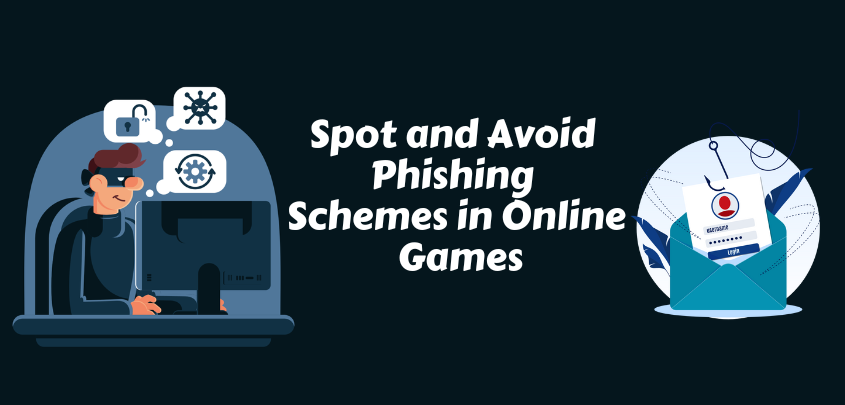
06, Sep, 2024
How to Spot and Avoid Phishing Schemes in Online Games
Online gaming has become a prime target for phishing schemes, where cybercriminals attempt to steal personal information, account details, or in-game assets through deceptive tactics. Here’s a real-life case story to illustrate how these scams can unfold and what you can do to protect yourself.
The “Free Skins” Trap
Alex, an avid player of a popular multiplayer game, was excited when he received a message from another player offering free in-game skins—highly coveted cosmetic items that usually require real money. The message included a link to a website that looked almost identical to the game’s official page. Eager to claim the free skins, Alex entered his login details on the site.
Within hours, Alex noticed that his account had been compromised. His in-game currency was drained, and his valuable items were gone. Worse, the scammer had used his account to send phishing messages to his friends, tricking some of them as well.
Spotting Phishing Schemes:
- Suspicious Links and Emails: If you receive messages, emails, or in-game chats with links promising free items, currency, or exclusive access, be cautious. Phishing links often mimic official game pages but lead to fake sites designed to steal your login credentials—just like what happened to Alex.
- Too-Good-to-Be-True Offers: Scammers frequently lure players with offers that seem too good to be true, such as discounted in-game items or cheats. If it seems too easy or too cheap, it’s likely a scam.
- Fake Login Screens: Be wary of login screens that pop up unexpectedly or ask for your credentials in unusual places. These can be phishing attempts disguised as part of the game.
- Urgent Security Alerts: Messages claiming your account is at risk and urging immediate action (like clicking a link to “secure” your account) are common phishing tactics. Always verify such alerts directly through official channels.
- Requests for Personal Information: No legitimate game or gaming platform will ask for sensitive information like passwords, security questions, or payment details through unofficial channels. If you’re asked, it’s a scam.
Avoiding Phishing Scams:
- Double-Check URLs: Always verify that the URL of any site you’re logging into is correct. Scammers often create similar-looking URLs to trick players, just like in Alex’s case.
- Enable Two-Factor Authentication (2FA): Adding an extra layer of security, like 2FA, can prevent unauthorized access to your account, even if your credentials are compromised.
- Avoid Sharing Information: Never share your login details, personal information, or payment data with anyone in-game or through unofficial channels.
- Use Official Platforms: Only download games, updates, and mods from official websites or trusted sources to avoid malicious software that could lead to phishing attempts.
- Stay Informed: Keep up with the latest phishing tactics and scam alerts from gaming communities and official sources. Knowledge is your best defense.
By staying vigilant and following these tips, you can enjoy your gaming experience without falling victim to phishing schemes like Alex did. 🎮🔒
